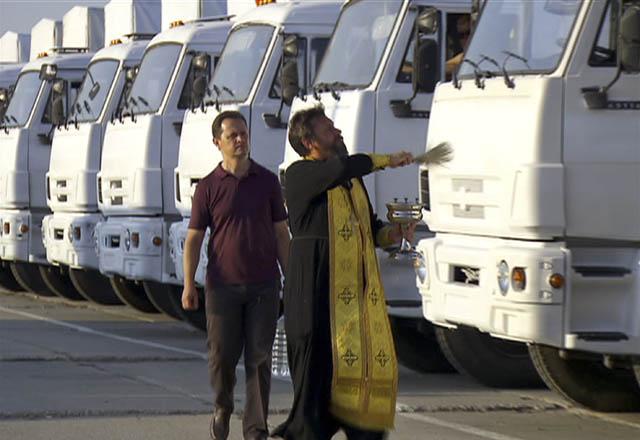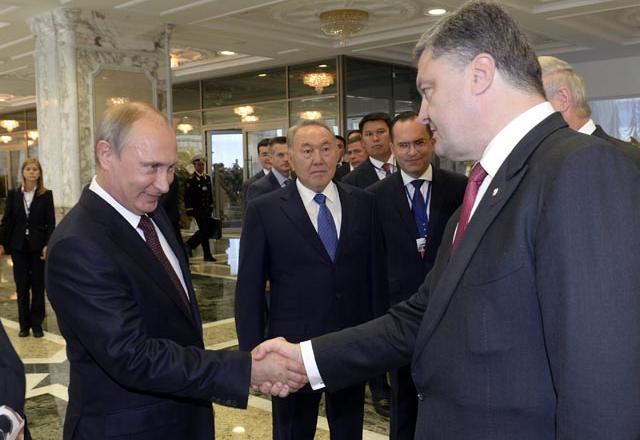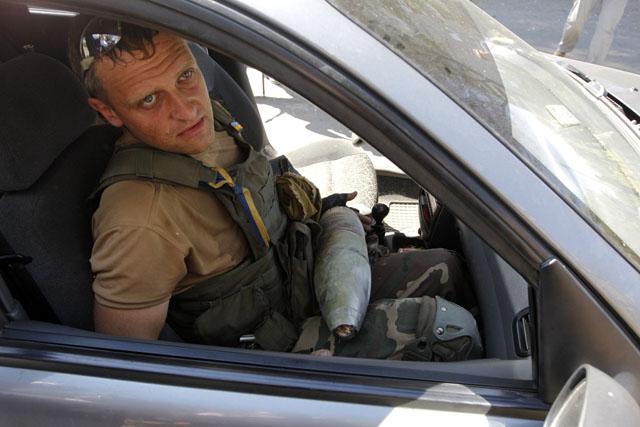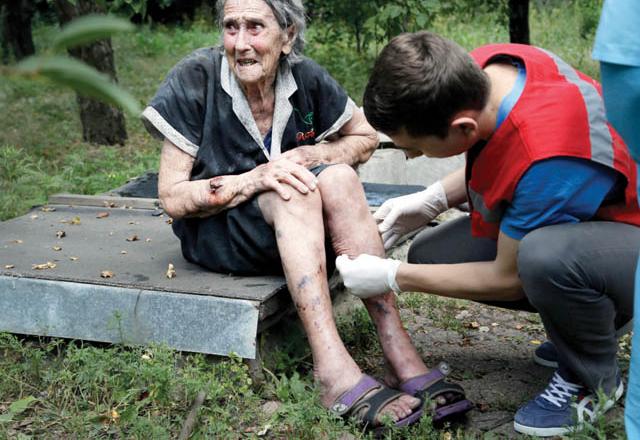You are here
Ukraine sets terms for Russian aid as convoy heads to border
By AFP - Aug 12,2014 - Last updated at Aug 12,2014

MOSCOW — Ukraine set terms Tuesday for allowing in Russian aid after Moscow sent a 280-truck convoy to the conflict-torn east and fueled fears the mission could be used to aid rebels.
The authorities in Kiev said they would stop the Russian lorries at the border but allow the aid to be unloaded and shipped into eastern Ukraine with the help of the Red Cross.
“We will not allow [the aid] to be accompanied by the Russian ministry for emergency situations or by Russian troops,” said Valeriy Chalyy, deputy head of the presidential administration.
Russia has stepped up calls for a humanitarian mission to the east where Ukrainian troops have tightened their grip following four months of fierce battles with pro-Moscow rebels that have left cities without power, running water or fuel.
There are also food shortages.
A convoy of 280 lorries left Moscow Tuesday for eastern Ukraine carrying 2,000 tonnes of “humanitarian supplies”, including medical equipment, baby food and sleeping bags, Russian media reported.
Sources told Russian news agencies the convoy would arrive at the border on Wednesday.
‘Catastrophic consequences’
President Vladimir Putin announced late Monday that Moscow was sending a humanitarian mission to deal with the “catastrophic consequences” of Kiev’s offensive against insurgents.
Moscow insisted it was working in collaboration with the International Committee of the Red Cross and that the convoy would not include military personnel.
But the international aid agency said Tuesday there was still no agreement on the issue and France insisted such convoys should not be allowed to cross the border unless they met strict conditions, including Red Cross approval.
As rebel strongholds warn of a looming humanitarian disaster in the east, Kiev has said it will only accept aid as part of a broader international mission involving Europe and the US under the supervision of the Red Cross.
The United States and other western powers accuse Moscow of fanning the insurgency by supplying arms to the rebels.
And at a time when Ukrainian forces are gaining ground against the rebels, they have also warned Russia against sending troops into Ukraine in the guise of a humanitarian mission.
NATO says Moscow has massed 20,000 troops along the Ukrainian border, while Kiev has put the number at 45,000.
Moscow however has denied the allegations.
As fierce fighting continued in the industrial east, Ukraine’s military said six servicemen had been killed and 31 were wounded in the past 24 hours.
Seven civilians were also injured in shelling overnight in the besieged main insurgent bastion of Donetsk, local authorities said, while Ukraine’s military said it was ready to surround the rebels’ second city of Lugansk.
Kiev’s forces hope to cut off rebel access to the porous Russian border, from where Ukraine believes the separatists are getting their weapons.
‘Fait accompli’ fears
Over 1,300 people have been killed in four months of what the Red Cross has already deemed a civil war, while 285,000 have fled their homes, according to the United Nations.
Heavily shelled rebel-held cities say they have been without power, running water or fuel for days, while medicine and food supplies are also running low.
With the mammoth convoy under way on Tuesday, Foreign Minister Laurent Fabius warned that it “could be a cover by the Russians to set themselves up near Donetsk and Lugansk, and declare a fait accompli”.
He added that the aid mission would be “only justifiable if the Red Cross gives its consent, if there are no military forces around [the mission], if there are not just Russians but other countries and if Ukraine agrees”.
“At this precise moment, this is not the case,” he said.
French President Francois Hollande also voiced “grave concerns” about a possible unilateral Russian mission into Ukraine.
The International Committee of the Red Cross (ICRC) confirmed that no green light had been given for an aid mission.
“We still need to get some more information before we can move ahead,” ICRC spokeswoman Anastasia Isyuk said in Geneva.
Former Ukrainian president Leonid Kuchma meanwhile told Interfax Ukraine news agency that Moscow, Kiev and the European security monitor OSCE agreed that aid should head for Lugansk through the government-held Kharkiv region.
He said OSCE monitors would accompany the convoy, but the organisation told AFP that they were still in talks to detail their involvement in an aid mission.
Related Articles
The presidents of Russia and Ukraine hold key talks Tuesday with little hopes for a breakthrough in resolving the raging conflict pitting Kiev against pro-Moscow separatist rebels.
Diplomatic efforts to douse an international firestorm over claims that Ukraine’s forces destroyed Russian military vehicles ratcheted up Saturday as Moscow demanded that Kiev allow its mammoth aid convoy to cross the volatile border.
Ukraine’s army shelled the main rebel bastion of Donetsk Sunday as Russia called for a humanitarian ceasefire, which the West warned could be a pretext by Moscow to send in troops.



















